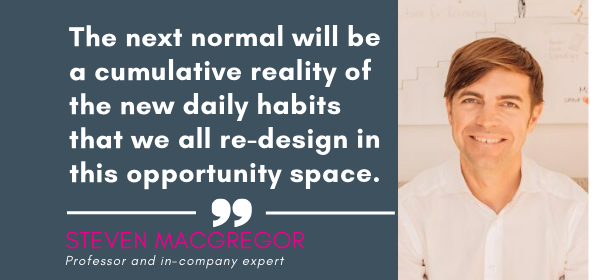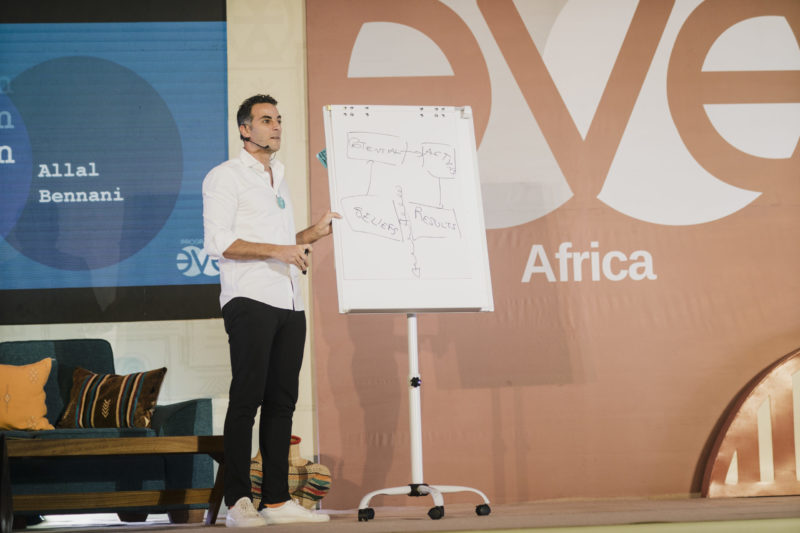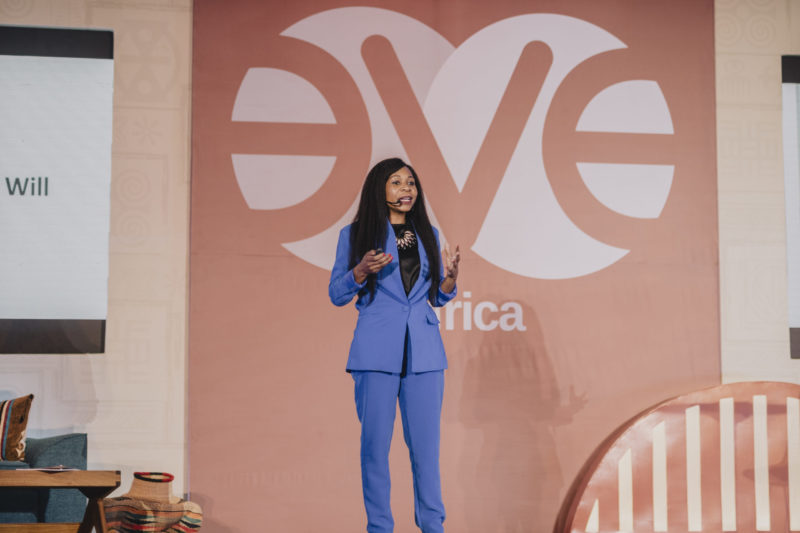Steven P. MacGregor for the EVE webmagazine
“Are you well?”
A simple question. Three words. Yet one of the biggest changes I’ve witnessed in the midst of The Great Reset has been “well” replacing the previous stalwart of opening small talk, “busy.”
We have asked our friends, families, colleagues, clients – and in the midst of the irony that has been increased social contact at greater social distance – new acquaintances from different spheres of our lives, and friends we haven’t spoken to in years.
In our work relationships we have been made acutely aware of any particular vulnerabilities of colleagues’ working from home situation, and ‘checking-in without checking-up’ may even have helped us to build closer relationships and stronger teams.
I have been on a mission to elevate health and wellbeing as more strategic business concerns for nearly 20 years, but that doesn’t mean I’m immune to the effects of COVID-19 that have compromised the health and wellbeing of millions of business people worldwide. A mix of one of the harshest quarantines globally (Spain), home-schooling a 5 year-old, business pressures, and even having a brand new Old English Sheepdog to clean up after have put to the test all of the health and wellbeing tactics I have communicated to managers over the years, some of which have worked, others not so much.
What has certainly helped is the increased interest from organisations in how “well” their employees are. And so swapping the usual stage or classroom for a newly designed webinar room at home I have talked of the importance of mindset (retaining calm in the face of chaos), self-care (putting ones’ own oxygen mask on first), gratefulness (either for our own situation e.g. no commute! or the sacrifice of others such as front-line health workers) and the basic physical and social needs of us all as human beings.
These themes, and the work of many organisations since the start of the crisis, might be categorized in the resilience or recovery areas, absorbing the initial shocks of the pandemic. Yet a third ‘R’ will be even more critical as we begin to de-escalate – Reform. Reform of the way we perceive health and wellbeing in business, reform of the behaviours we demonstrate as leaders, and of the behaviours we incentivize and reward in our teams. Reform of the questions we ask.
As a means of moving forward positively in this emerging reality, here are 10 questions that will help your own wellbeing and that of your teams.
- What are the uniquely good things that happened to me during strict lockdown, for which I was grateful, and which may retain a presence moving forward?
- What are the things that are most causing me worry and stress? How do I remember that I shouldn’t spend too much energy on things outside my control?
- How might I transition from the confined reality of remote working with a future mode of flexible working for both me and my team?
- How do I maintain self-care as a primary concern, and the means of best taking care of my family and colleagues?
- How might I best create meaning in the work I do each day, and connect that to a positive impact on society?
- How do I balance empathetic leadership and coaching others while still retaining energy and space for me and my family?
- What daily habits and behaviours should I encourage to drive a more positive working environment for my team?
- How do I best connect with nature on a daily basis?
- How do I best connect with others on a daily basis?
- How do I best connect with myself on a daily basis?
In many ways the challenge is only now beginning as we mount the crest of those monstrous COVID-19 total cases and mortality curves. What was expected of us to date was clear-cut. Not pleasant perhaps, but unambiguous. High ambiguity, where we now find ourselves, is also unpleasant. But therein lies the opportunity to reform. Innovators know that high ambiguity at the beginning of a project or process (sometimes called the fuzzy front end) is often necessary to create something new and valuable, rather than being stuck with ‘the way we’ve always done it’ train of thought.
The next normal will be a cumulative reality of the new daily habits that we all re-design in this opportunity space. Whether those habits relate to how we move, eat, shop, work or communicate, entire industries may rise or fall. And the habits of our teams, often a reflection or cue from the habits we ourselves showcase as leaders, will impact their wellbeing, and ultimate ability to thrive in a post-pandemic working world.
The Great Reset has forced us to pause. What is now necessary is balancing the necessary zeal of enthusiasm to re-start, with jumping too quickly to action and applying the same flawed logic as before. Diagnosing and reframing ought first to be the focus. Defining the right question is often more difficult than finding the right answer. Are you well? might be a good place to start.
 Working in the area of workplace health and wellbeing for almost 20 years Steven has helped build positive habits for thousands of leaders in his roles as Professor (IMD, IESE, CEIBS) and in-company expert (Salesforce, Uber, McKinsey). His recent books include Chief Wellbeing Officer and Sustaining Executive Performance.
Working in the area of workplace health and wellbeing for almost 20 years Steven has helped build positive habits for thousands of leaders in his roles as Professor (IMD, IESE, CEIBS) and in-company expert (Salesforce, Uber, McKinsey). His recent books include Chief Wellbeing Officer and Sustaining Executive Performance.






